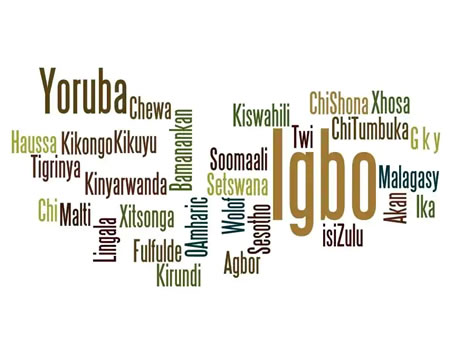
Conserving Nigeria’s indigenous languages

THAT Nigeria is blessed with several ethnic tribes speaking different languages is saying what is obvious.
It is really hard to ascertain the actual number of languages spoken in the country because in some tribes, the major language is further broken down into different dialects.
A good example is the Yoruba people of South West Nigeria, who have different dialects of their Yoruba language like Egba, Ijebu, Saki, Ondo, among others.
However, while the country is blessed with all these languages, they are being threatened by globalization.
Robbery suspect allegedly kills partner while sharing loot in Yenagoa
The meaning of this is that the world is now a global village and a popular culture is emerging, especially among the youth, who have access to technological gadgets, with further alienate them from their culture.
In Nigeria today, it is hard to find a child who speaks his/her mother tongue fluently, as most parents prefer to speak to their children or wards in the English language.
It has gotten to terrible that a child who speaks the English language fluently is considered intelligent, while the one who speaks his mother tongue fluently is considered ‘local.’
The effect of this neglect of the mother tongue cannot be over-emphasised, as these are the same generation that will pass on the culture, of which the language is an important part, to the next generation.
It is, therefore, important for the government and cultural organisations to reverse this trend of love for globalization and work for the survival of our culture.
Despite globalisation, some countries like China, Japan, South Korea, among others, still preserve their culture through their languages.
These countries still speak their local languages and conduct businesses or teach in their local languages.
Their culture is then further enhanced when a foreigner comes to their countries to study but has to undergo a compulsory one-year language lesson before the commencement of their studies.
With this, these countries are foistering their languages on an international audience, which further translates into a higher survival rate for the languages.
The Nigerian government and cultural organisations should, therefore, rise to the occasion, and one of the major ways through which we can conserve our culture is ensuring that children from age five downwards are encouraged to speak only their mother tongues.
- Israel Adekola lives in Ile-Ife, Osun State.
The post Conserving Nigeria’s indigenous languages appeared first on Tribune Online.